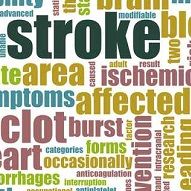Article
Strokes Have Measurable Impact on Survivors' Spouses
Author(s):
Even as many as seven years following a stroke, the spouses of stroke survivors experience a reduced health-related quality of life

Even as many as seven years following a stroke, the spouses of stroke survivors experience a reduced health-related quality of life (HRQoL), as compared to a control group. Josephine Persson, MSc, and colleagues completed a statistical analysis of data collected from the 7-year follow up of the Sahlgrenska Academy Study on Ischemic Stroke (SAHLSIS) to “assess the long-term aspects of health-related quality of life among spouses of stroke survivors.”
There have been many studies that examined the HRQoL of the spouses of older stroke survivors in the first two years following the stroke. However, the longer-term effects and the effects on those who are younger when the stroke occurs has been less-investigated. The researchers used data collected in the 7-year follow up of the SAHLSIS.
The analysis included 600 people with ischemic stroke before the age of 70, and 600 controls of the same age and sex as those recruited for the stroke study. Both groups were invited to respond to a questionnaire, and the stroke survivors were invited to either visit a research nurse and a research physician at Sahlgrenska University or, if travel was difficult, to be visited in their homes. Spouses of both groups were also invited to participate in the study.
Between the original study and the 7-year follow up, 131 stroke survivors and 108 controls became single, died, or were excluded for other reasons. At the time of this analysis, 299 stroke survivors and 344 controls were available. The researchers worked with data from 248 spouses of stroke survivors and 245 controls.
Older spouses of stroke survivors had lower HRQoL, particularly in the physical functioning and general health categories. Another factor that played an important role in the spouses’ HRQoL was the survivors’ level of impairment, both physical and cognitive. According to the study, “The main predictors of the physical domain scores were the age of the spouses of stroke survivors and the global disability of the stroke survivor.”
The mental health of stroke survivors also impacts the health of spouses. There was a clear correlation between the depressive symptoms of the survivors and their spouses’ mental health. The researchers recommend additional longitudinal studies to understand how stroke survivors’ disabilities have an impact on their spouses.



